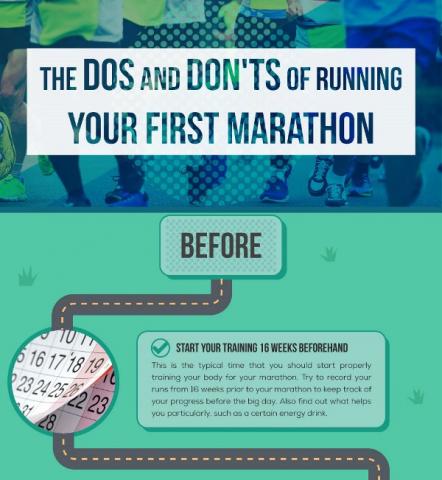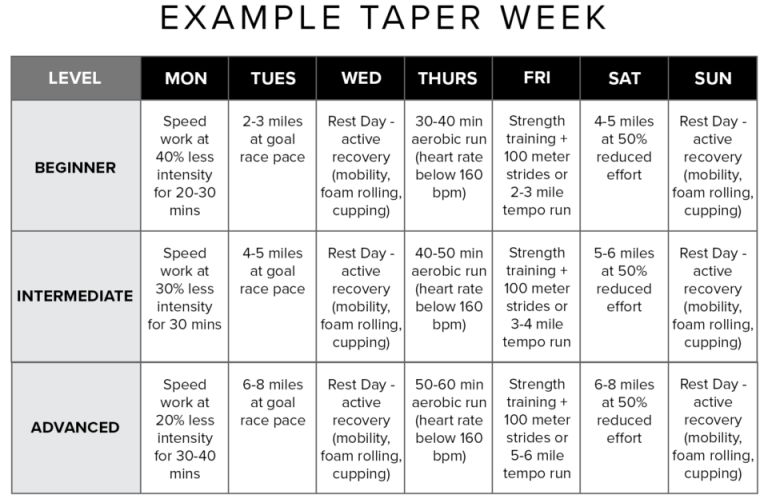Do’s and Don’ts before a Marathon
Before running a marathon, do train consistently, stay hydrated, and fuel your body properly. Avoid overtraining, skipping rest days, and trying new things on race day.
Runners need to be mindful of essential steps before taking on a marathon. Whether it’s your first or fiftieth, adequate preparation is crucial for a successful and enjoyable experience. In this guide, we will explore the dos and don’ts to help you tackle the marathon with confidence.
By following these practical tips, you can enhance your training, avoid common pitfalls, and set yourself up for a strong race day performance. Let’s delve into the key considerations to ensure you’re well-prepared and ready to take on the challenge of running a marathon.

Credit: www.youtube.com
Setting Goals
Setting Goals:
Choosing A Realistic Target
Set a goal that challenges you but is achievable.
Consider your current fitness level and past performances.
Keep in mind any time constraints or limitations you may have.
Breaking Down Your Training Plan
- Divide your training into manageable milestones.
- Focus on building endurance and speed gradually.
- Include rest days to prevent overtraining and injuries.

Credit: blogs.bcm.edu
Preparing Your Body
Before embarking on the exhilarating journey of running a marathon, it is crucial to prepare your body to endure the physical demands of this intense endurance race. Adequate preparation can minimize the risk of injuries and optimize your performance on race day.
Getting A Medical Check-up
Prior to committing to a marathon training regimen, obtaining a thorough medical evaluation is essential. It is vital to ensure that you are in good health and have no underlying medical conditions that could be exacerbated by the physical stress of training.
- Consult with a healthcare professional to assess your cardiovascular health, joint strength, and overall physical readiness for a marathon.
- Identify and address any pre-existing injuries or health concerns that may affect your training and performance.
Strengthening Core Muscles
Developing a strong and stable core is paramount for marathon runners. A sturdy core provides the foundation for efficient running mechanics and helps reduce the risk of injury.
- Incorporate core-strengthening exercises such as planks, leg raises, and Russian twists into your training routine.
- Engage in activities like yoga or Pilates to improve flexibility, balance, and core strength, which are pivotal for long-distance running.
Fueling Your Body
Fueling your body is crucial when preparing for a marathon. Eating a balanced diet, hydrating properly, and fueling during the race are key components to consider before running a marathon. Let’s delve into the H3 headings of Eating a Balanced Diet and Hydrating Properly to ensure your body is properly fueled for the race.
Eating A Balanced Diet
A balanced diet rich in carbohydrates, proteins, and healthy fats is essential for marathon preparation. Include whole grains, lean proteins, fruits, and vegetables in your meals to provide the necessary nutrients for energy and muscle recovery. Avoid processed foods and excessive sugar, as they can lead to energy crashes during the race.
Hydrating Properly
Proper hydration is vital for peak performance. Drink plenty of water in the days leading up to the marathon, and avoid excessive caffeinated or alcoholic beverages that can lead to dehydration. During the race, utilize electrolyte-enhanced drinks to replenish essential minerals lost through sweat. Monitor your hydration status by paying attention to your urine color – pale yellow indicates adequate hydration.
Training Tips
Running a marathon can be a daunting task, but with the right training tips, you can set yourself up for success!
Gradually Increasing Mileage
Progressively adding distance to your runs helps prevent injuries and improves endurance.
- Start with shorter runs
- Increase mileage by no more than 10% per week
- Incorporate rest days to allow for recovery
Incorporating Cross-training
Engaging in other forms of exercise can enhance your running performance and reduce the risk of overuse injuries.
- Include activities like cycling or swimming
- Strength training helps build muscle strength
- Balance and flexibility exercises aid in injury prevention
Taking Care Of Yourself
Running a marathon is a physically and mentally demanding endeavor. To make sure you perform at your best on race day, it is essential to take care of yourself throughout your training. Ignoring your body’s needs can lead to injuries, fatigue, and decreased performance. In this section, we will discuss two crucial aspects of taking care of yourself when training for a marathon: getting enough rest and listening to your body.
Getting Enough Rest
Rest is vital for your body’s recovery and growth. When training for a marathon, it’s common to push yourself to the limit, but neglecting rest can do more harm than good. Your body needs time to repair tissues, replenish energy stores, and build strength.
Here are some important do’s and don’ts to remember for getting enough rest:
| Do | Don’t |
|---|---|
|
|
By prioritizing rest, you give your body the chance to adapt and recover, reducing the risk of injuries and ensuring you are ready for race day.
Listening To Your Body
Your body is a remarkable machine that knows how to communicate its needs. As a marathon runner, it’s crucial to listen to these signals and respond accordingly. Pushing too hard without considering your body’s feedback can lead to burnout and potential injuries.
Here are some important do’s and don’ts to remember when listening to your body:
| Do | Don’t |
|---|---|
|
|
By listening to your body and making the necessary adjustments, you can avoid overexertion, mitigate the risk of injuries, and maintain a healthy training routine.

Credit: finishlinept.com
Frequently Asked Questions Of Do’s And Don’ts Before Running A Marathon
What Shouldn’t You Do Before A Marathon?
Avoid these key mistakes before running a marathon: overtraining, neglecting rest days, neglecting proper hydration, skipping nutrition planning, and wearing new or untested gear. Stick to a well-balanced training plan and take care of your body to maximize race day performance.
What Should I Do 24 Hours Before A Marathon?
Stay hydrated, eat familiar foods, rest well, check your gear, and plan your race strategy. Avoid trying anything new.
What To Do Before Running A Marathon?
Before running a marathon, ensure to train adequately, stay hydrated, eat well, get enough rest, and consult a doctor if needed.
Conclusion
Remember, proper preparation is key to successfully completing a marathon. By incorporating the do’s and avoiding the don’ts discussed, you can optimize your performance and prevent potential injuries. Stay consistent, listen to your body, and enjoy the journey towards reaching your marathon goals.
Happy running!






